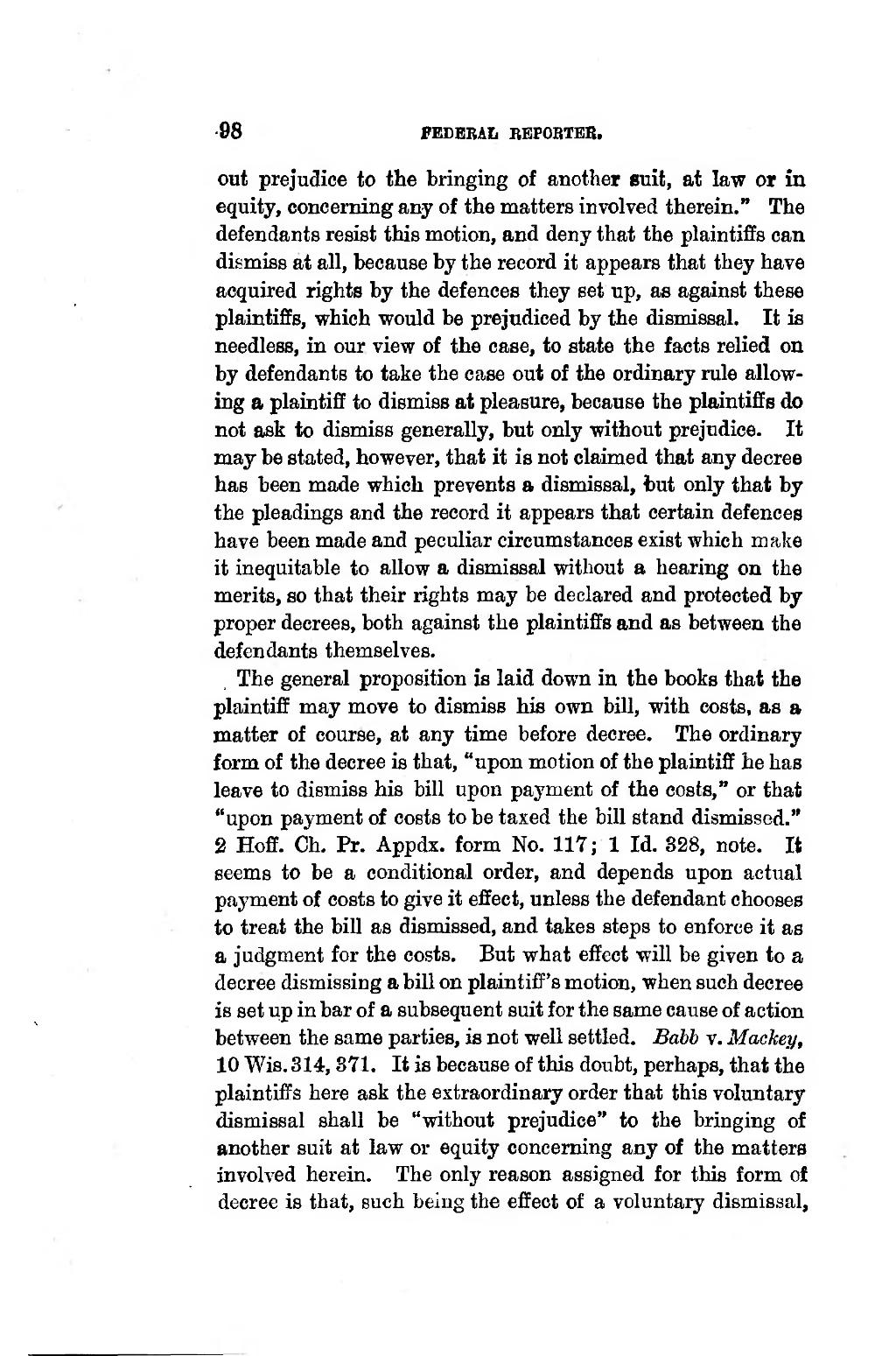88 FEDEEAIi REPOBTER. �out prejudice to the bringing of another suit, at law or în equity, concerning any of the matters involved therein." The defendants resist this motion, and deny that the plaintiffs can dismiss at ail, because by the record it appears that they have acquired rights by the defences they set up, as against these plaintififs, which would be prejudiced by the dismissal. It is needless, in our view of the case, to state the facts relied on by defendants to take the case out of the ordinary rule allow- ing a plaintiff to dismiss at pleasure, because the plaintiffs do not ask to dismiss generally, but only without prejudice. It may be stated, however, that it is not claimed that any decree has been made whioh prevents a dismissal, but only that by the pleadings and the record it appears that certain defences have been made and peculiar circumstances exist which make it inequitable to allow a dismissal without a hearing on the merits, so that their rights may be declared and protected by proper decrees, both against the plaintiffs and as between the defendants themselves. �The general proposition is laid down in the books that the plaintiff may move to dismiss his own bill, with costs, as a matter of course, at any time before decree. The ordinary form of the decree is that, "upon motion of the plaintiff he has leave to dismiss his bill upon payment of the costs," or that "upon payment of costs to be taxed the bill stand dismissed." 2 Hoff. Ch, Pr. Appdx. form No. 117; 1 Id. 828, note. It eeems to be a conditional order, and depends upon actual payment of costs to give it effect, unless the defendant chooses to treat the bill as dismissed, and takes steps to enforce it as a judgment for the costs. But what effect will be given to a decree dismissing a bill on plaintiff 's motion, when such decree is set up in bar of a subsequent suit for the same cause of action between the same parties, is not well settled. Babb v. Mackey, 10 Wis. 314, 371. It is because of this doubt, perhaps, that the plaintiffs here ask the extraordinary order that this voluniary dismissal shall be "without prejudice" to the bringing of another suit at law or equity concerning any of the matters involved herein. The only reason assigned for this form of decree is that, euch beiiig the effect of a voluntary dismissal, ����
